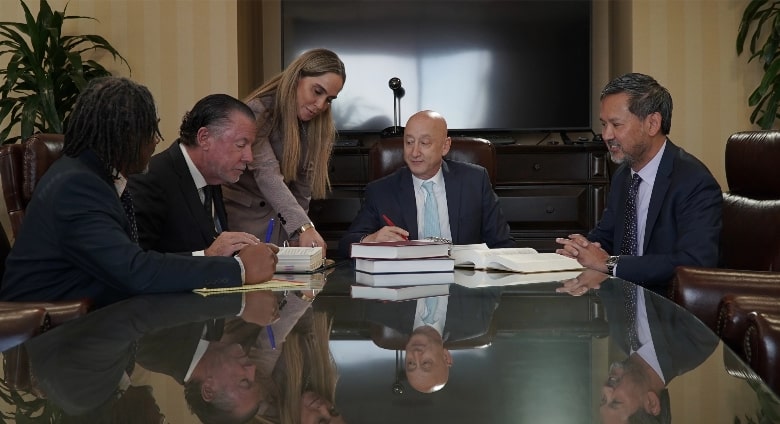
Our clients benefit from the breadth and depth of our expertise in many fields
Stay Up To Date On The Latest Findings In Our Practice Areas And Achievements From Our Firm.
Bus services like Greyhound can be convenient for long-distance travel in California and across the U.S. However, passengers are highly vulnerable to injuries in the event of an accident due to lack of seatbelts, people standing, and the size of the vehicle. If you suffer injuries in a Greyhound bus accident, you have special protection …
If you have been involved in a car accident, slip-and-fall, or other incident caused by another party’s negligence, you may have suffered a spinal cord injury, which can have long-term effects on your life. This can be an overwhelming experience, and you may not know how to fight for your rights and where to start …
California’s diverse climate, ranging from heavy rains to occasional frosty mornings, can create hazardous conditions that lead to slip-and-fall accidents. These weather-related incidents often occur on sidewalks, in parking lots, and at entrances to buildings, posing significant risks to pedestrians. Navigating the liability in such cases can be complex, as it involves understanding the responsibilities …
The recent release of hotel security footage obtained by CNN shows Sean ‘Diddy’ Combs violently assaulting his then-girlfriend, Cassie Ventura, in 2016. The discovery of this footage has sparked societal outrage and has called into question whether or not Combs can be prosecuted for the upsetting actions that take place in this footage. The unfortunate …
In the aftermath of a car accident, the ability to provide clear and compelling evidence can make all the difference in determining liability and securing fair compensation. In recent years, dash cams have emerged as invaluable tools for capturing real-time footage of road incidents, offering drivers an additional layer of protection in the event of …
When you are involved in a car collision, exchanging insurance information with the other driver is a critical step toward resolving any damages or injuries. However, what should you do if the other driver refuses to share their insurance details? This scenario can be frustrating and alarming, leaving you uncertain about your next steps. Whether …
I am very pleased with the outcome of the court case. I am also very impressed with the way you handled the entire proceedings, questioning the witnesses and presenting and delivery of the facts to the jury. This reinforces my belief that having a skillful and competent trial lawyer like yourself makes a significant difference in sensitive cases such as employment actions.
Anonymous

From the bottom of my heart- THANK YOU!! You and your firm will get nothing but rave reviews from me and I am very impressed with all that you did for me. Your passion for this work is obviously still alive and I received the outcome I had been hoping for since June.
Brenda D.
Callahan & Blaine has continually impressed me as one of the strongest and most competent law firms in the County. For the past 25 years, Callahan & Blaine has been an integral part of Orange County’s legal community. I am pleased to strongly recommend Callahan & Blaine as litigation counsel and would be happy to provide you with any additional information, if needed.
Tom Daly

I’m grateful that I was referred to you by our family attorney. Her confidence in your firm was very reassuring. I too would be happy to refer your firm to anyone who may be in need! Without a doubt, you are the best and you have lived up to your reputation!
Tracy

Thank you all for the great job done. Your consistent attention, expertise, and professionalism is greatly appreciated. We definitely would not have achieved the same outcome without your services. My family and I thank you.
l.s.
© 2024 BY CALLAHAN & BLAINE. ALL RIGHT RESERVED.
Fill out the form regarding your potential case.